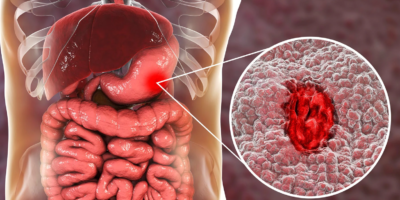Dementia is a disease, not a normal age change. It’s marked by the progressive deterioration of memory, other intellectual functions, and the ability to perform daily tasks. How do you know if memory loss is normal? Some degree of age-related forgetfulness happens to almost everyone. Whereas long-term memory (the names of your loved ones, significant events from your past) is normally well preserved, short-term memory gets a bit fuzzier. For instance, you may remember exactly what you were doing when you learned about the terrorist attacks on September 11, 2001, but forget where you put your car keys, why you walked into a room, or the name of the actor in the movie you saw last week. People with dementia forget big things: the names of close friends, how to balance a checkbook, or how to navigate from home to the grocery store.


1. Simple Salmon
How it works: People who eat more coldwater fish, which is rich in the brain-friendly fatty acid docosahexaenoic acid (DHA), reduce their risk of cognitive decline and dementia. Fatty fish is also one of the few food sources of vitamin D, a vitamin with multiple functions, including proper brain function and nerve protection. Many Americans have insufficient blood levels of this vitamin. Unfortunately, low levels correlate with dementia.
- PREPARATION:
- 1 pound (455 g) salmon fillet, or 4 fillets (4 ounces, or 115 g each)
- Freshly ground black pepper (optional)
- 1 tablespoon (15 ml) olive oil
- 1 teaspoon (1 g) crushed fresh oregano
- 1 lemon, cut into wedges
- DIRECTIONS: Preheat the oven to 450°F (230°C, or gas mark 8). Wash the fillet(s) and pat dry. Place the fish skin down on a baking sheet. Sprinkle with pepper, if using. In a small bowl, mix the olive oil and oregano. Brush this mixture onto the salmon. Bake for 10 to 15 minutes until flaky. Serve with lemon wedges.
- YIELD: 04 SERVINGS
2. Spicy Milk
How it works: The key ingredient in curry is turmeric. It contains the potent anti-inflammatory and antioxidant agent curcumin, which may help to counter the inflammation and oxidation that promotes nerve-degenerating conditions such as dementia. Furthermore, curcumin inhibits the formation of beta-amyloid and improves its clearance. However, curcumin isn’t well absorbed from the intestine. Consuming it with fat (as in full-fat milk, butter, or oil) and pepper improves absorption.
- PREPARATION:
- 1 teaspoon (2 g) ground turmeric
- ½ teaspoon freshly ground black pepper
- 1 cup (235 ml) whole milk
- DIRECTIONS: Mix the turmeric and pepper into the milk. Drink one serving twice daily—morning and evening.
- YIELD: 01 SERVINGS
3. Berry Strong Brain
How it works: Berries, red grapes, pomegranate, and chocolate are rich in chemicals called polyphenols, which are antioxidant and anti-inflammatory. Regular consumption of berries is associated with a reduced risk of Parkinson’s disease, which can cause dementia. In the cellular equivalent of housekeeping, extracts of strawberries and blueberries help the brain cells clean up toxic debris. In rats, a diet high in extracts of strawberries, blueberries, and blackberries reverses age-related deficits in learning and memory. Grape polyphenols reduce the production of beta-amyloid, inhibit its tendency to clump, protect the brain cells from its toxic effects, and curb the inflammatory activity.
- PREPARATION:
- 1 cup (150 g) halved red grapes
- 1 cup (160 g) halved strawberries
- 1 cup (145 g) blackberries or blueberries
- ½ cup (87 g) pomegranate arils (sometimes called seeds)
- ½ cup (87 g) dark chocolate chips (optional)
- Plain or honey-flavored Greek yogurt, for topping
- DIRECTIONS: Mix the grapes and berries in a large bowl. Stir in the pomegranate arils. Fold in the chocolate chips, if using. Divide among four dessert plates. Top each serving with a dab of yogurt.
- YIELD: 04 SERVINGS
4. Moroccan Sage Tea
How it works: Lab experiments show green tea polyphenols are antioxidant and nerve protectant and inhibit beta-amyloid-induced nerve damage. Populations that drink more green tea have been found to have a lower rate of cognitive impairment.
Chemicals in garden sage are anti-inflammatory and antioxidant, help preserve the brain’s acetylcholine (a brain chemical decreased in Alzheimer’s), and protect neurons from beta-amyloid’s toxic effects. Several studies demonstrate memory enhancement with oral consumption of either dried leaf extracts or small amounts of diluted essential oil in healthy people, both old and young. At least one study shows that inhalation of the essential oil improves memory and mood.
- PREPARATION:
- 1 teaspoon (2 g) green tea leaves
- 1 teaspoon (1 g) dried sage
- 2 cups (475 ml) boiling water
- Stevia, to taste
- DIRECTIONS: Place the tea leaves and sage in a teapot. Pour the boiling water over the mixture. Steep for 5 minutes. Gently stir the tea and strain into two cups. Add stevia.
- YIELD: 02 SERVINGS
5. Mind-Enhancing Hot Chocolate
How it works: Consumption of another polyphenol-rich food, chocolate, has been shown to reduce the risk of stroke. A dose of cocoa increased blood flow to the brain’s gray matter while healthy volunteers took a cognitive test. In one study, 90 seniors with mild cognitive impairment drank cocoa with varying amounts of flavanols (a polyphenol) for eight weeks. Those with the higher amounts in their drink tested with improved attention and other mental skills.
- PREPARATION:
- 1 cup (235 ml) almond milk
- 2 tablespoons (10 g) unsweetened cocoa powder
- ½ teaspoon vanilla extract
- Pinch of salt
- Stevia (we use ½ packet [0.5 g]), equivalent to 1 teaspoon [4 g] sugar)
- Pinch of ground cinnamon
- DIRECTIONS: In a medium-size saucepan, mix together the almond milk, cocoa powder, vanilla extract, and salt. Warm over low heat. Add stevia to taste. Whisk as the mixture warms until it is frothy and steaming. Pour into a cup and top with the cinnamon. If it’s too thick for your taste, try adding up to ½ cup (120 ml) of water.
- YIELD: 01 SERVINGS
6. Mental Focus Aromatherapy
How it works: Studies show that among essential oils, sage, rosemary, and peppermint all enhance memory.
- PREPARATION:
- 1 drop sage essential oil
- 2 drops rosemary essential oil
- 3 drops peppermint essential oil
- DIRECTIONS: In a small, clean jar, blend the sage, rosemary, and peppermint oils. Drop a cotton ball into the jar. Apply the essential oils to the cotton ball. Cap tightly. Open the jar and sniff daily.
- YIELD: A WEEK’S WORTH OF SNIFF SESSIONS
Fact or Myth?
- DRINKING WINE IS GOOD FOR THE BRAIN. Maybe. Moderate drinking has cardiovascular benefits. And healthy arteries promote healthy brain function. Studies have indeed linked light and moderate alcohol consumption with a lower risk of Alzheimer’s disease. However, alcohol in excess is toxic to nerves. Alcoholism is a cause of dementia.
Lifestyle Tip
- Eat breakfast. Nights are long. The brain demands a constant supply of glucose (blood sugar) to function well. Studies show that a nutritionally balanced breakfast each morning will help improve mood and keep energy and cognitive performance on an even keel.
- Crack open a brazil nut. brazil nuts are rich in selenium, a mineral that acts as an antioxidant and contributes to normal brain functions. Scientists have linked higher selenium levels in the body with a lower risk of depression. Preliminary research suggests that low selenium is a risk factor for cognitive decline. Brown rice, oatmeal, and whole-grain bread are other good sources of selenium.






Leave a Reply